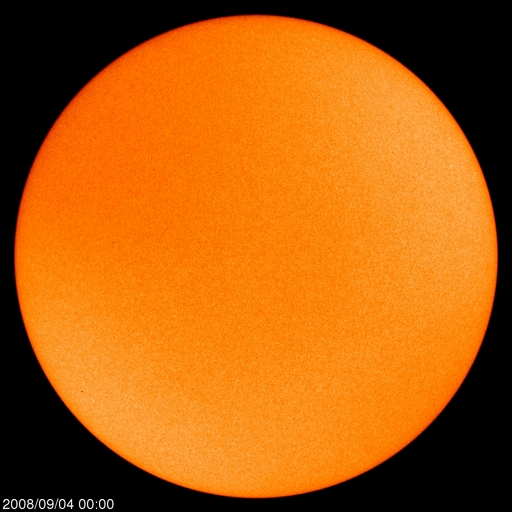"Climate consensus" continues to unravel
 The most curious solar cycle 24 continues its dearth of sunspots. The Sun has now gone more than a month without a spot, the first time in a century (nice roundups here and here).
The most curious solar cycle 24 continues its dearth of sunspots. The Sun has now gone more than a month without a spot, the first time in a century (nice roundups here and here).Why is this important? There is circumstantial but strong evidence that the 11-year solar magnetic cycle and its longer-term modulations are responsible for the Earth's climate variability over decades to centuries to millennia. The stronger that cycle is on the Sun, the warmer it seems to be here; the weaker, the cooler. The best proxy metric for the cycle strength is its exact period, which varies somewhat from just under 10 years to about 11 years. The cycle is stronger when the period is shorter, weaker when longer.
However, other measures of cycle strength are also used. One is total solar surface area covered by spots; another is number of spots. "No spots visible" might mean the new cycle 24 will be weaker. The last four cycles have been fairly strong, with cycle 22 of the late 80s being the strongest of the four. Perhaps not accidentally, temperatures on Earth the last year or so have been ~ 0.6 - 1.0 oC cooler than the decade immediately prior (with annual and daily variations removed).
Meanwhile, some scientific organizations have issued an equally curious call for a lot more money to be spent in climate modeling, because, you see, climate still isn't nailed down. If it means going back to scratch with unanswered basic scientific questions, yes, although I doubt a huge amount will be necessary. If it means continuing down the same deadend path climate modeling has been on for the last 30 years, no, it's a waste. It's more of the same mistakes. But it's not what they said that's really important, it's what's implied: climate is not nailed down scientifically. Indeed.
I think we're within a year or two of laying the manufactured climate crisis to rest for good. Then the science can come out from under its 15-year partial embargo.
POSTSCRIPT: Here's a technical comparison of climate models with observed climate, over weekly-to-century time scales (Koutsoyiannis et al.), with negative conclusions about the reliability of climate models beyond a scale of about a year. That is, conventional climate models are unreliable for "climate" as opposed to "weather." (Hat tip to ClimateAudit.)
Labels: climate, cycles, global warming, radiation, sun


0 Comments:
Post a Comment
<< Home